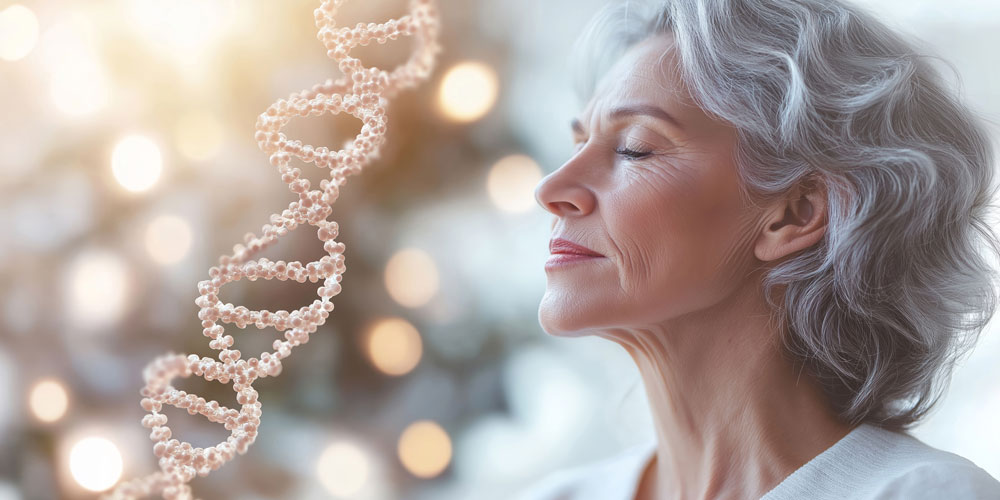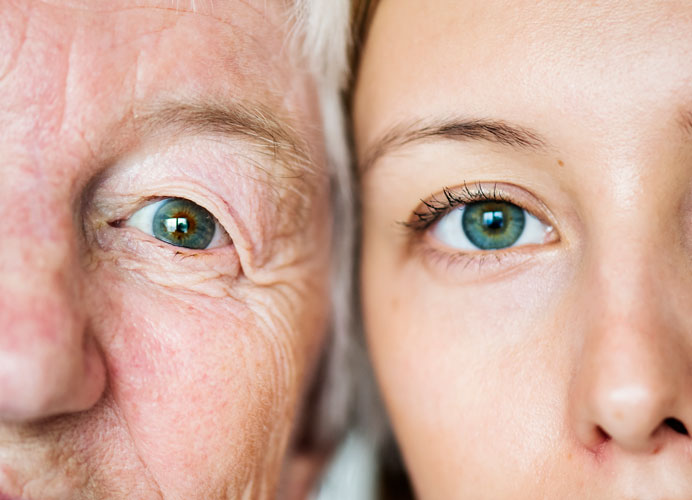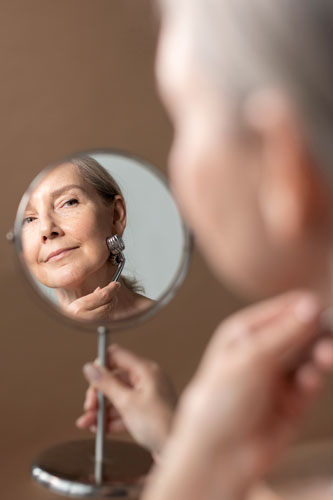Aging and Hormones: How to Stay Balanced Through Each Decade

Hormones regulate nearly every system in the human body. From energy and metabolism to sexual function and cognitive health, these chemical messengers support overall wellness across your lifespan. As we age, however, the balance of hormones produced by the endocrine system shifts, leading to a wide range of age-related changes.
Understanding how hormonal changes occur across each decade can help you take practical steps to support healthy aging, extending life span and health span well into older adulthood.
Your 20s: Build Your Hormone Foundation
In your 20s, hormone production is typically at its peak. The pituitary gland, anterior pituitary, and adrenal cortex all work efficiently to regulate vital processes such as growth, metabolism, and reproductive health. Key hormones like growth hormone, luteinizing hormone, follicle stimulating hormone, and sex hormones such as estrogen and testosterone are well-regulated during this phase.
For young adults, this is the time to build healthy habits to ensure your body produces hormones optimally for long-term balance.
Focus on:
- Consistent physical activity and aerobic exercise
- Nutrient-dense eating for metabolism and immune system support
- Stress management to protect adrenal function and cortisol balance
- Early screening for thyroid disease or other hormonal conditions
Maintaining healthy growth hormone levels and insulin-like growth factor production can help preserve muscle strength, cognitive function, and bone density as you age.
Your 30s: Early Shifts Begin

By your 30s, you may notice subtle signs that your endocrine system is starting to shift. Though many hormones are still functioning efficiently, metabolism slows slightly, and other factors like stress, sleep habits, and diet begin to affect hormone balance more noticeably.
Hormonal concerns in this decade may include:
- Changes in thyroid hormones or thyroid stimulating hormone levels
- Irregular menstrual cycles in women
- Slightly decreased libido in both men and women
- Early signs of decreased muscle strength or energy levels
This is also the stage where parathyroid hormone, which regulates calcium levels and supports bone strength, begins to play a larger role in long-term bone health. Bone mineral density starts to decline, especially without regular physical exercise or strength training.
Your 40s: More Noticeable Hormone Changes

In your 40s, hormonal changes become more obvious. Women often enter perimenopause, while men may experience a gradual decline in testosterone. These age-related changes can affect everything from energy and mood to sleep and sexual function.
Common symptoms include:
- Decreased libido and erectile dysfunction in men
- Mood changes and hot flashes in women
- Bone and joint pain due to changes in hormone-regulated bone density
- Changes in blood flow and blood pressure regulation
During this stage, keeping an eye on cardiovascular health becomes essential. Evidence suggests that sex hormones like estrogen and testosterone play a role in protecting against heart disease. As hormone levels decline, the risk of cardiovascular disease and other chronic disease conditions begins to rise.
Supporting your hormones in your 40s includes:
- Regular hormone testing
- Discussions with your healthcare provider about hormone therapy or testosterone supplementation if appropriate
- Continued aerobic exercise and resistance training
- A focus on cognitive health and stress reduction
Your 50s and Beyond: Support for Healthy Aging

By the time you reach your 50s and 60s, the ageing process often brings a significant decline in several hormones produced by the anterior pituitary, adrenal cortex, and thyroid gland. Older adults often experience a measurable drop in thyroid hormones, growth hormone levels, testosterone, estrogen, and other hormones that help regulate metabolism, mood, and bone strength.
Age-related hormonal decline in this stage can lead to:
- Loss of muscle mass and weight gain
- Reduced cognitive function and increased risk of Alzheimer’s disease
- Bone fractures due to low bone mineral density
- Increased joint pain and inflammation
- Risk of prostate cancer in men and cardiovascular disease in both sexes
Men may experience more pronounced effects of low testosterone, such as erectile dysfunction, fatigue, and muscle loss. Women in postmenopause may notice changes in skin elasticity, sleep quality, and memory. For both, maintaining a healthy weight, muscle strength, and cardiovascular fitness becomes a top priority.
Key strategies for staying balanced include:
- Bioidentical hormone replacement therapy, when guided by a qualified provider
- Regular screening for thyroid disease, heart disease, and osteoporosis
- Nutritional support for bone health and metabolic balance
- Monitoring blood pressure, blood flow, and other vital health markers
Hormonal Support Is About More Than Age

While hormones change with advancing age, the pattern and pace vary from person to person. Genetics, lifestyle, stress, underlying health conditions, and other factors influence how your body ages. Even younger people can experience hormone imbalances due to poor sleep, chronic stress, or gastrointestinal issues affecting nutrient absorption.
The good news is that with regular monitoring, professional guidance, and targeted interventions, you can support hormone balance at every stage of life.
Why Work With Tucson Wellness MD
At Tucson Wellness MD, we specialize in helping patients navigate the complex relationship between aging and hormones. Whether you’re exploring preventive strategies in your 20s or 30s, or seeking support for hormone decline in your 50s or 60s, we provide personalized plans built on clinical experience and the latest evidence.
Our approach includes:
- Comprehensive lab testing to assess hormone levels
- Individualized hormone therapy when appropriate
- Support for thyroid function, adrenal health, and metabolism
- Lifestyle guidance for healthy aging and long-term wellness
Stay in Balance at Every Age
Hormonal health plays a central role in how you age, how you feel, and how long you stay active and independent. Whether you’re aiming to maintain a healthy sex life, support your cognitive function, or reduce the risk of chronic disease, paying attention to your hormones is essential.
At Tucson Wellness MD, we offer hormone replacement therapy based on your unique needs. Whether you’re concerned about declining testosterone levels, bone loss, mood swings, or broader effects on your body systems, our team is here to help. Taking action now could improve your life expectancy and support your long-term well-being.
Schedule a consultation with Tucson Wellness MD today to start building your path to long-term hormonal health and wellness through every decade of life.